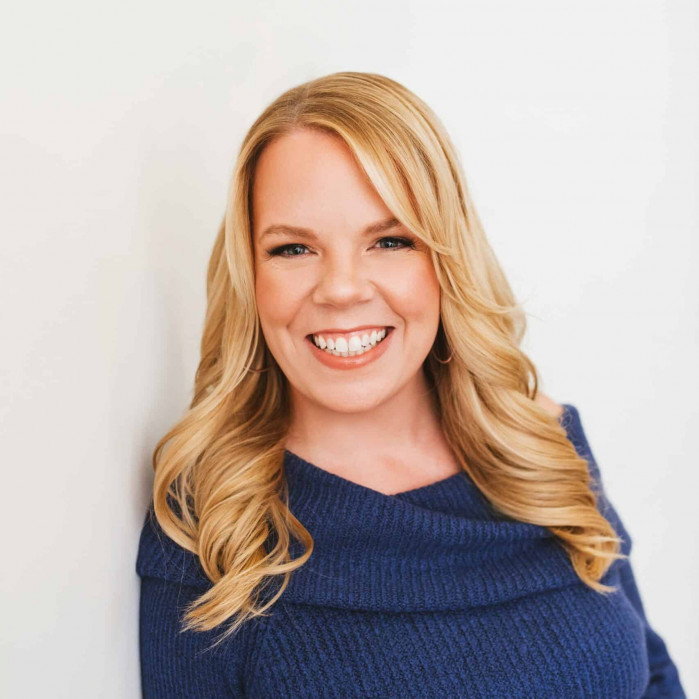It’s hard to keep a clean house. Sure, I know some people who find cleaning therapeutic and have totally mastered the art of keeping a pristinely spic-and-span home. But for most people (hi, yes, basically everyone), that’s far from the case. Cleaning can be so tedious that we put it off for hours and days, creating a looming deadline over our weekends.
There have to be ways of doing this better, so I checked in with a few experts to learn more. Turns out we don’t have to keep fantasizing about throwing the whole house away and starting over from scratch. There are easy solutions for getting your home together that don’t take tons of time—and they come from real, flawed people who weren’t always tidiness experts.
"I was a total slob, drowning in clutter," says Cas Aarssen, author and cleaning expert at Clutterbug. "I was always late, always stressed, and my home was a disaster. But slowly, just one drawer or pile at a time, I organized my entire home—and it changed my life."
Develop solutions that work for real human beings.
Avoid one-size-fits-all strategies—different styles work for different people. "Figure out what makes sense for you and is easy to maintain," says Rachel Hoffman of Unf*ck Your Habitat. "Let’s say you always have a pile of clothes outside the bathroom door (or in the garage, living room, or wherever you shed your clothes at the end of the day). If the ‘right’ way of organizing says the hamper needs to be in the bedroom, you’re probably going to fail at it. Just put the hamper where the clothes pile ends up—you’ll use it."
Don’t get distracted.
Distractions are a key reason cleaning takes so long. When you find yourself hopping between tasks, doing a little bit of organizing and a little bit of dusting, it’s hard to complete one actual task.
"Don’t put it down; put it away," Hoffman says. "A few seconds of extra effort now will save you so much time and annoyance later."
But what if, like some of us (not naming any names), you’ve already scattered your stuff literally all around your home?
"Get yourself a 'tidy tote,'" Aarsen says. "This isn’t a product you buy—just grab a large bag with handles (or a laundry basket) that you can carry around with you while you speed-clean. Quickly pick up all those little things left lying around and put them in the bag. This way, you can return all the little knickknacks to their rightful homes at once, instead of running around putting things away."
Prioritize the spaces that really matter.
"I focus on my most important areas, then let go of perfection and set myself time limits," says Melissa Maker, host of the YouTube channel Clean My Space. "Depending on how much I know I need to clean, I allot myself a certain amount of time to get the most important areas done—and then I move on and do the things I really want to do that weekend."
Regular cleaning is better than marathons.
If you were the kind of student who put off writing your paper until the night before, you’ll probably remember the procrastination mindset isn’t conducive to stress-free living. So you may not be shocked to discover that a more effective habit is to clean a little bit each day rather than jump into intensive weekend cleaning binges.
"Marathon cleaning works against you," says Hoffman. "It causes exhaustion, frustration, and a deeper resentment of cleaning." Unlike cram sessions, regular cleaning alleviates the sense of urgency that comes with letting tasks pile up.
"I’m a big proponent of doing a little at a time, regularly," she says. "You’re less likely to burn out, and it helps you get in the habit of making improvements without a huge time investment."
View organizing as an investment.
"A truly organized home means it can perpetually stay tidy with minimal effort, and less tidying means your home becomes much easier to clean," Aarssen says. "An organized home can cut your housework in half."
So when we prioritize organization, we can spend less time cleaning, which means more time spent doing stuff we actually want to be doing.
"Before I organized my home, I spent hours every weekend tidying and scrubbing my house, instead of spending quality time with my family," Aarssen says. "Getting organized was a time-consuming process in the beginning, but now I only have to do a quick daily clean, and my weekends are free to spend doing the things I love. Best. investment. ever."
Know your skills—and what challenges you most.
Aarsen also believes that the real issue stems from the fact that so few of us have taken the time to learn what style of organizing really works for us as individuals—and she offers a test for discovering just that.
In her book, Real Life Organizing, Aarssen explains the importance of knowing how you organize. "Everyone organizes differently, and organizing solutions aren’t one size fits all. Knowing yourself and your organizing style can help you finally create systems that work for you and your family—and keep you organized for good," she says.
It’s normal for cleaning to be a challenge, but it doesn’t have to remain that way. According to the experts, there are tons of ways to take the pain out of tidying our homes. So why not clean smarter instead of harder?
A. Rochaun Meadows-Fernandez is a diversity content specialistwho produces materials relating to mental and physical health, sociology, and parenting. Her work can be seen on several national platforms. Check her out on Facebook and Twitter.


